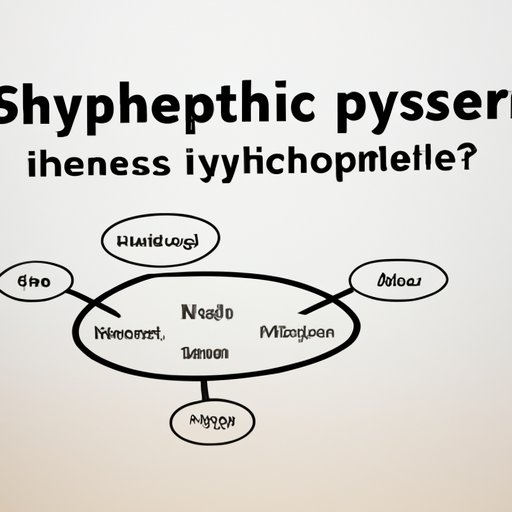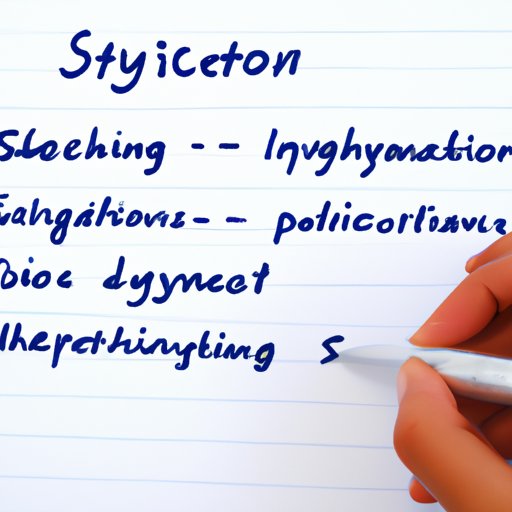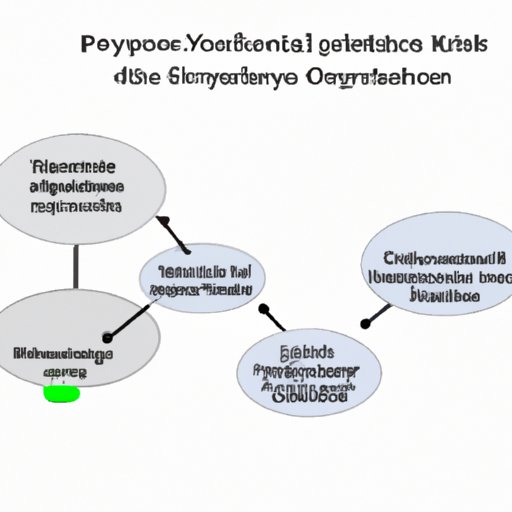Introduction
A hypothesis is a statement or an educated guess about a phenomenon or a scientific problem. It is used in science to explain a phenomenon or to make predictions about future events. Scientific hypotheses are based on observations and prior knowledge, and they can be tested through experiments and data collection. The purpose of a hypothesis is for scientists to gain a better understanding of the world around them and advance their fields of study.
Definition of Hypothesis in Science
According to the National Science Teachers Association, “A hypothesis is a statement that provides a possible explanation for an observed event or phenomenon.” In other words, it is an educated guess about a scientific problem or phenomenon. A hypothesis allows scientists to develop a testable prediction that can be proved or disproved through experimentation and data collection.

Role of Hypothesis in Scientific Research
Hypotheses play an important role in scientific research. They provide a starting point for scientists to begin their research and form the basis of any scientific study. By formulating and testing hypotheses, scientists can learn more about the natural world and advance their fields of study. As physicist Max Planck once said, “A new scientific truth does not triumph by convincing its opponents and making them see the light, but rather because its opponents eventually die and a new generation grows up that is familiar with it.”

Formulating a Hypothesis for Scientific Studies
When formulating a hypothesis for a scientific study, there are several steps that must be taken. First, the researcher must identify the problem and develop relevant questions. This will help the scientist determine what needs to be studied and what type of hypothesis should be formulated. Next, the researcher must write an appropriate hypothesis statement. This statement should include the variables being studied and clearly state the relationship between them. Finally, the hypothesis must be tested with experiments and data collection.
Common Types of Hypotheses Used in Science
There are three main types of hypotheses used in science: null hypotheses, alternative hypotheses, and directional hypotheses. A null hypothesis states that there is no relationship between two variables. An alternative hypothesis states that there is a relationship between two variables. A directional hypothesis states that there is a specific direction or pattern to the relationship between two variables.
Applying the Scientific Method with Hypothesis Testing
The scientific method is the process used to test hypotheses and draw conclusions from experiments. After formulating a hypothesis, the researcher must develop predictions based on the hypothesis. These predictions will be tested through experiments and data collection. The researcher must then collect data to test the hypothesis. Once the data has been collected, the researcher must analyze the results and draw conclusions from the experiment.

Evaluating Hypotheses and Drawing Conclusions from Scientific Experiments
Once the data has been collected and analyzed, the researcher must evaluate the validity of the hypothesis. This involves examining the results of the experiment and determining whether the hypothesis was supported or rejected. If the hypothesis was supported, the researcher can draw conclusions from the experiment. If the hypothesis was rejected, the researcher may need to adjust the hypothesis and conduct further experiments.
Conclusion
In conclusion, hypothesis is an important part of scientific research. It provides a starting point for researchers to formulate testable predictions and gain a better understanding of the world around them. Hypotheses can be tested through experiments and data collection, and conclusions can be drawn from the results. By utilizing the scientific method, hypotheses can lead to new discoveries and advances in science.
(Note: Is this article not meeting your expectations? Do you have knowledge or insights to share? Unlock new opportunities and expand your reach by joining our authors team. Click Registration to join us and share your expertise with our readers.)
